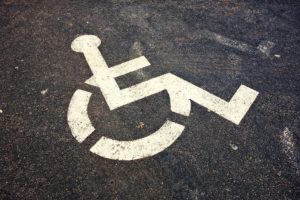
As I mentioned last week, we had a lovely visit in British Columbia, but alas, our 2.5 year streak of avoiding the virus came to an end. Thankfully, we are all recovering well, each at our own pace (young people faster than older ones, not surprisingly). It’s a process.
One thing that I tend to do when I’m tired or not feeling well is to sit on the couch and scroll Twitter. This can be a mixed blessing, to say the least. Currently, thanks to some interesting people I’ve been following, I’m seeing a lot of disability Twitter. I am grateful not to be disabled at the moment, but with Long COVID striking one in 8 adults who recover from it, according to the current numbers, there is no question in my mind that disability issues are going to come to the forefront in the coming years, just by sheer numbers.
The other thing is that all of us, as we get older, are going to find that we can’t do some things we used to do, or at least not as easily as before. We can scream and yell and kick and fight, but if we are blessed with longevity, it is going to come with some limitations. What can we do to make life better for people with physical or mental disabilities?
There is a tendency to put the answer to this question on individuals – in fact, when I posted something to this effect on Facebook, a reliably right-wing acquaintance of mine told me that his late wife had been disabled for the last few years of her life, and they “sought solutions for impediments”. He scolded me and said that “turning the world upside down and defining a term such as ableism does not make it any easier for the disabled while disconveniencing (sic) everyone else.”
I dunno – is requiring all public buildings, as an example, to have ramps such an inconvenience for those who don’t require them? On the contrary, you could argue that ramps are convenient for people pushing strollers or even book carts. All kinds of things that are set up to make things better for disabled people can turn out to be useful for everyone.
I’ve mentioned many times my conviction that every human is created in the image of the Divine, and therefore deserves to live with dignity, regardless of their ability to contribute to an extractive capitalist economy. In North America, too many disabled people are living in the kind of poverty that is not compatible with a good and dignified life, with no prospects of ever getting out of it.
There is an indifference to people dying from this pandemic, as long as they had “underlying conditions”. Culling the herd, if you will. Is this not eugenics, which is ableism taken to the extreme? I don’t know how else to explain that so many people have decided to drop any and all precautions, which might protect them and others.
To quote Mahatma Gandhi, the true measure of any society can be found in how it treats its most vulnerable members. I don’t think we are doing too well around here.
I’d love to know what you think about this. Drop me a response and let me know!
